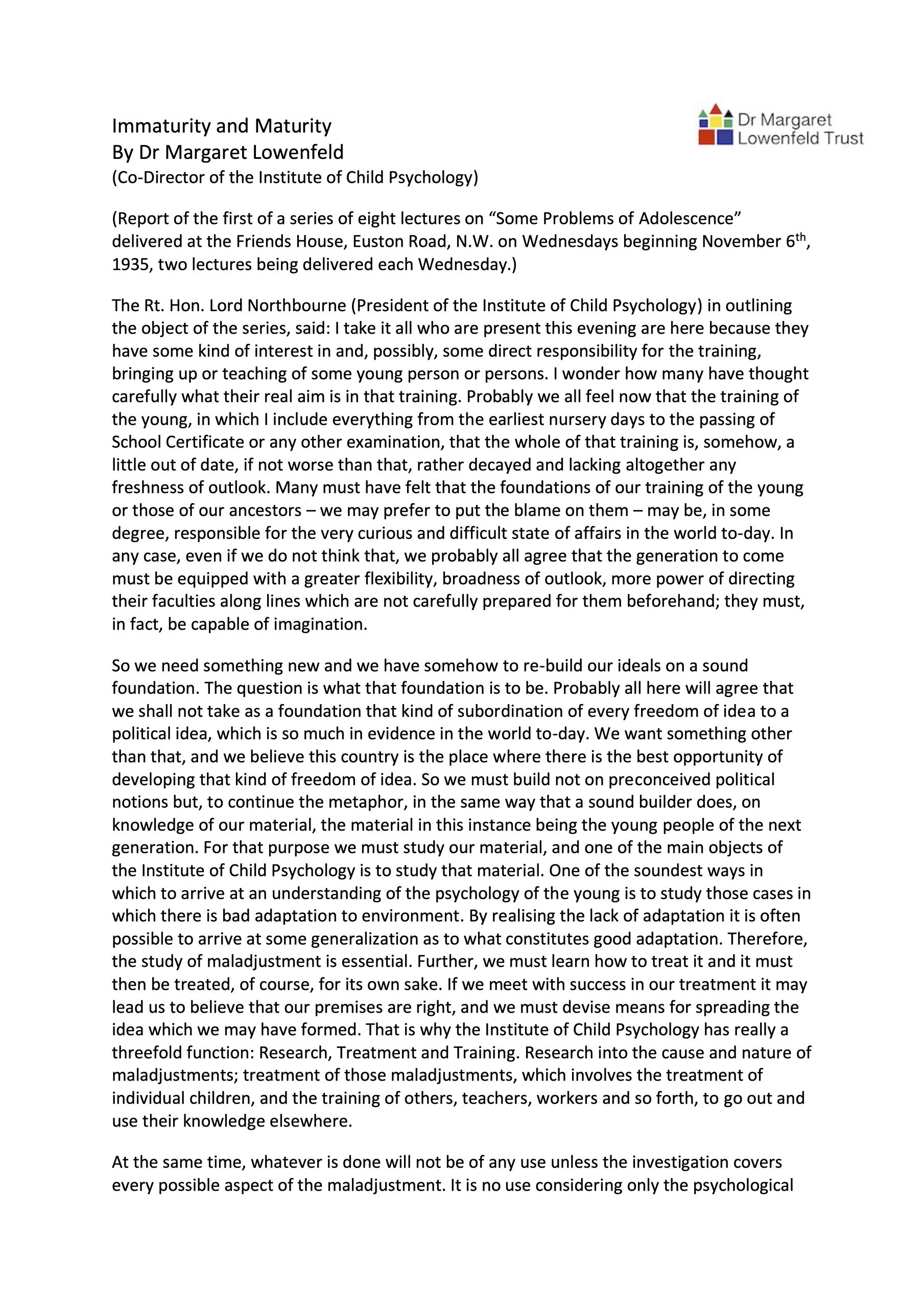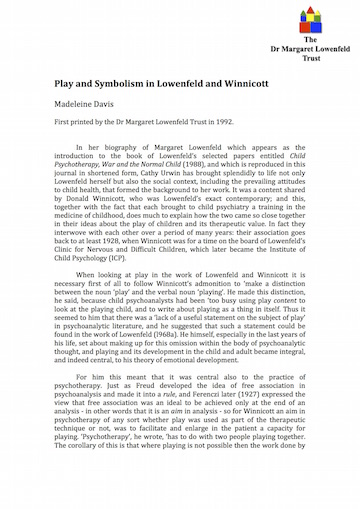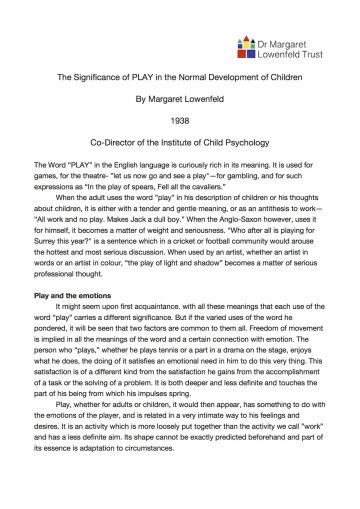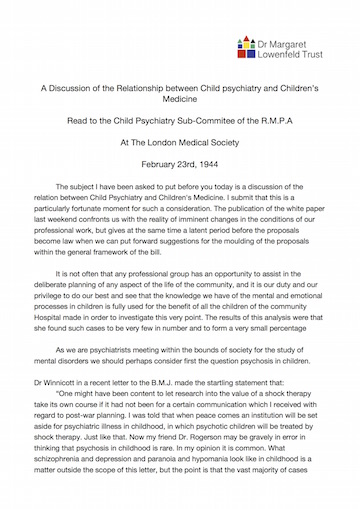Immaturity and Maturity
You May Also Like
Play and Symbolism in Lowenfeld and Winnicott
In her biography of Margaret Lowenfeld which appears as the introduction to the book of Lowenfeld’s selected papers entitled Child Psychotherapy, War and the Normal Child (1988),...
Lowenfeld Mosaics – complete set of tiles and tray
By Margaret Lowenfeld
This order comes with a free copy of Expressing the Shape and Colour of Personality by Therese Woodcock and The Lowenfeld Mosaic Test book. Price: £123.00 pl...
Price:
£123
£123
The Significance of Play
The Significance of PLAY in the Normal Development of Children
By Margaret Lowenfeld
1938
When the adult uses the word ”play” in his description of children or his thoughts abo...
Child Psychiatry and Medicine
The subject I have been asked to put before you today is a discussion of the relation between Child Psychiatry and Children’s Medicine. I submit that this is a particularly f...




